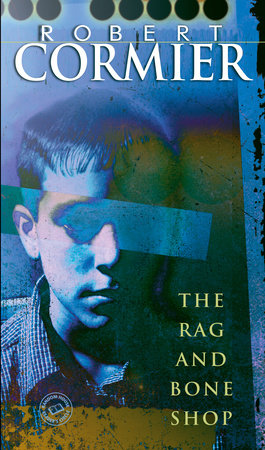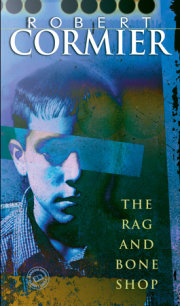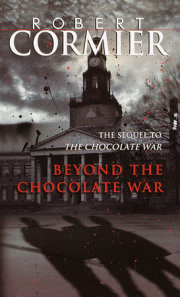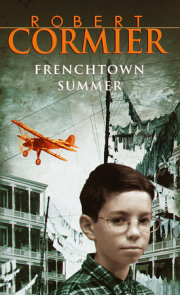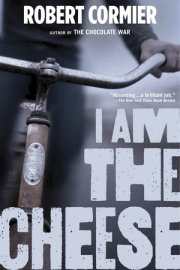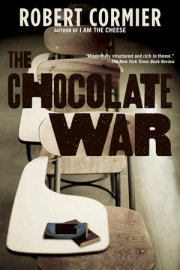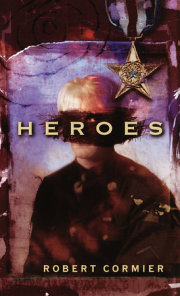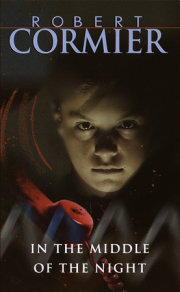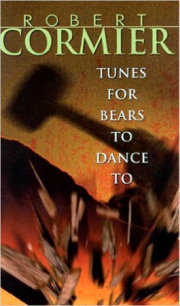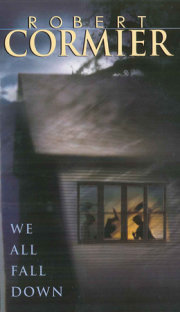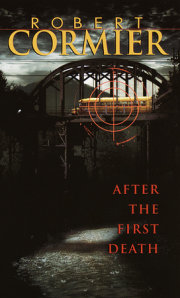Part I
“Feeling better?”
“I guess so. My headache’s gone. Is there a connection?”
“Maybe. They say confession’s good for the soul. But I don’t know if it eliminates headaches.”
“Am I supposed to say I’m sorry now?”
“The fact that you confessed indicates a degree of sorrow.”
“Is that enough?”
“That’s up to you, Carl. What you did can’t be erased, of course.”
“I know. They’re dead. Gone. Can’t bring them back. But—can the sin be erased?”
“I can’t tell you that. I’m not a priest.”
“But I confessed to you.”
“Yes, but I can’t give you absolution.”
Pause.
“Are the police coming?”
“They’re waiting outside.”
Trent shut off the tape player and leaned back in the chair, kneaded the flesh above his eyebrows. In the silence of the office, he still heard Carl Seaton’s voice, all cunning gone, penitent, full of regret. Trent had sat across from him for four hours, under the harsh light of a 100-watt ceiling bulb, in the small cluttered office. The relentless questions and answers, the evasions and rationalizations, the eventual admission (not the same as a confession), and, finally, the confession itself.
The Trent magic touch at work, as a newspaper headline had once proclaimed. But Trent felt no particular magic now, no thrill of accomplishment. Too many confessions? Like Carl Seaton’s? Having induced Carl to confess (that old Trent magic has you in its spell), Trent had had to listen to the recitation of his cold-blooded, deliberate murder of three people. The victims were a thirty-five-year-old woman, her thirty-seven-year-old husband and their ten-year-old son, although Carl hadn’t known their ages at the time.
Six months ago, in the milky whiteness of a winter dawn, Carl Seaton had broken into the modest two-story home of Aaron and Muriel
Stone to steal the small gun collection in the cellar. He admitted that he knew nothing about guns except the pleasure of holding them in his hands and the sense of power they gave him. Carl Seaton broke a cellar window, not worried about the noise of his intrusion, having learned that the family was away on vacation and that there was no alarm system.
He was disappointed to find that there were only three small guns in the so-called collection. He was surprised to find that the guns were loaded. He then decided to search the house. Thought he might find something of value, although he knew nothing about fencing stolen goods. Heard a noise from the second floor. Padded toward the stairs, his sneakers noiseless in the carpeted hallway. Upstairs, he entered a bedroom and was surprised to see a man and woman asleep in the bed. The woman slightly curled up, the bedclothes thrown off. Beautiful eyelashes, thick and curved. The husband flat on his back, mouth open, snoring gently. Carl became conscious of the gun in his hand, felt suddenly the power of his position. What it must feel like to be—God. Looking down at them, so helpless and defenseless, it occurred to him that he could do anything he wanted with them. They were at his mercy. He wondered what the woman would look like without her blue nightgown on. He had never seen an actual naked woman, only in magazines, movies and videos. But it was too much of a bother now to think about that. He didn’t want to spoil this nice feeling, just standing there, knowing he was in charge. He raised the gun and shot them. First, the man. The bullet exploded through the thin blanket, small shreds of green cloth filling the air like rain, the noise of the shot not as loud as he’d imagined it would be. As the woman leaped awake, her eyes flying open, he shot her in the mouth, marveled at the gush of
blood and the way her eyes became fixed and frozen in shock. A mighty sneeze shook his body, the smell of gunpowder heavy in the air.
He wondered: Was there anybody else in the house who might have heard the shots? He went into the hallway, opened a door at the far end, saw a boy sleeping in a bed shaped almost like a boat, hair in neat bangs on his forehead. The boy’s eyelids fluttered. Carl wondered whether he should shoot him or not. Then decided that the boy would be better off if he did. Terrible thing to wake up and find your mother and father dead. Murdered. Carl shot the boy as an act of kindness, nodding, feeling good about it, generous.
Carl Seaton had confessed his acts of murder almost eagerly, glad to provide the details that would lead to his own doom, his voice buoyant with relief. Which was often the case with those who finally acknowledged their acts.
Trent felt only contempt for Carl Seaton, although he had simulated sympathy and compassion during the interrogation. Acting was only another facet of interrogating subjects. If he felt any compassion at the moment, it was for Carl Seaton’s parents. Carl was seventeen years old.
Copyright © 2001 by Robert Cormier. All rights reserved. No part of this excerpt may be reproduced or reprinted without permission in writing from the publisher.

